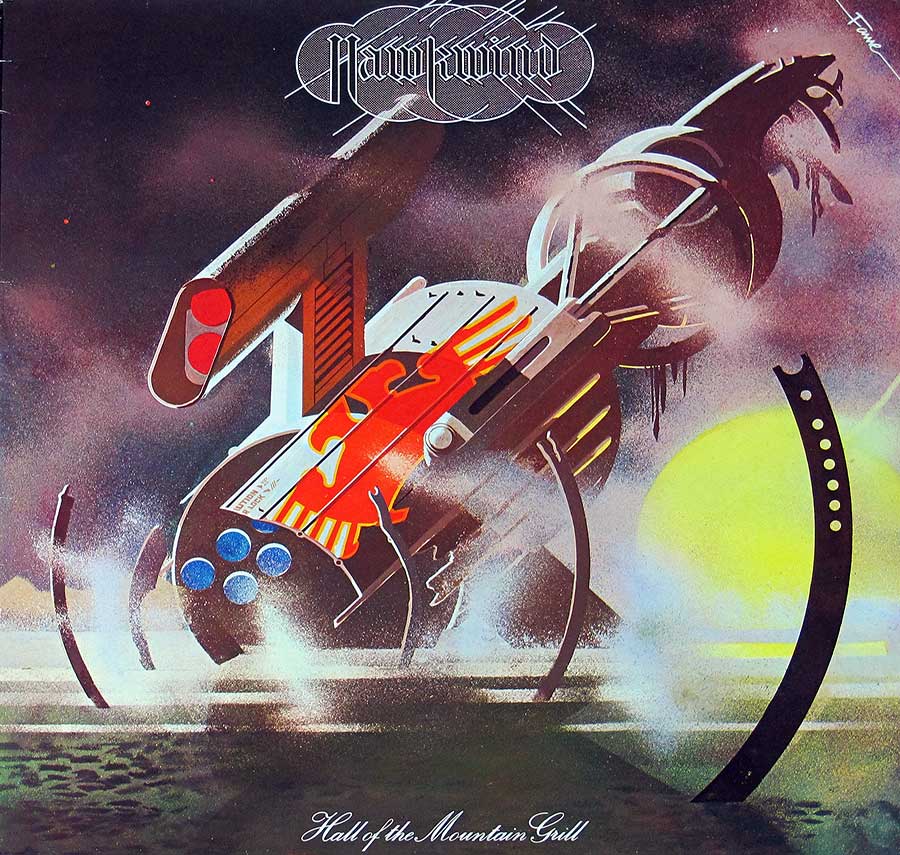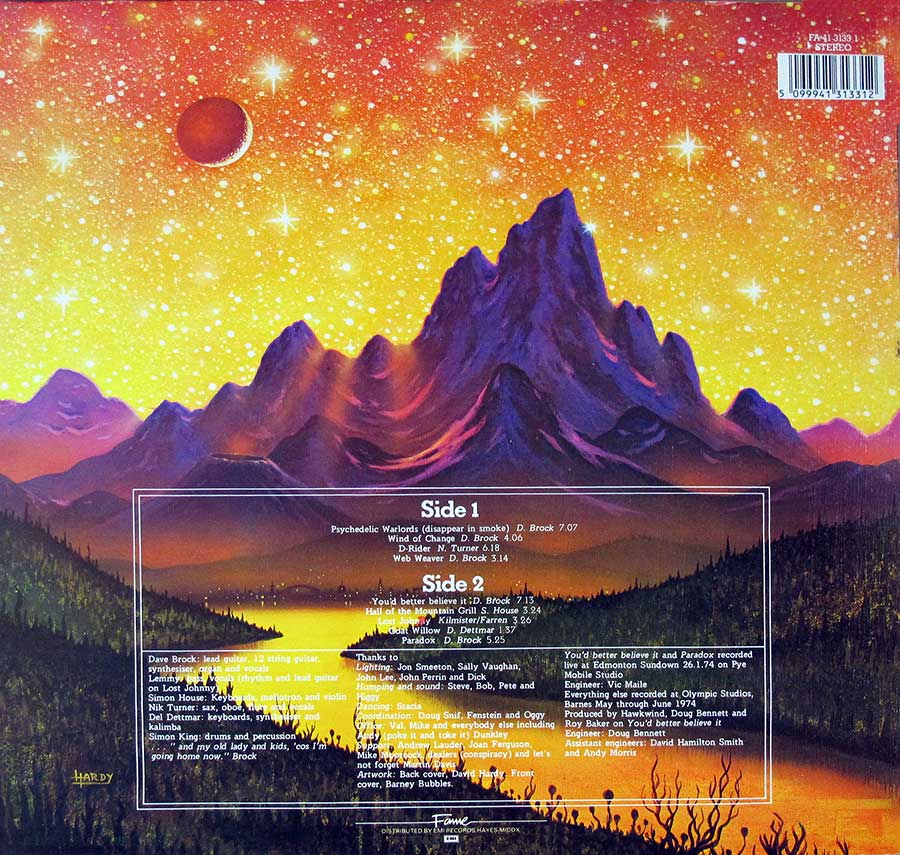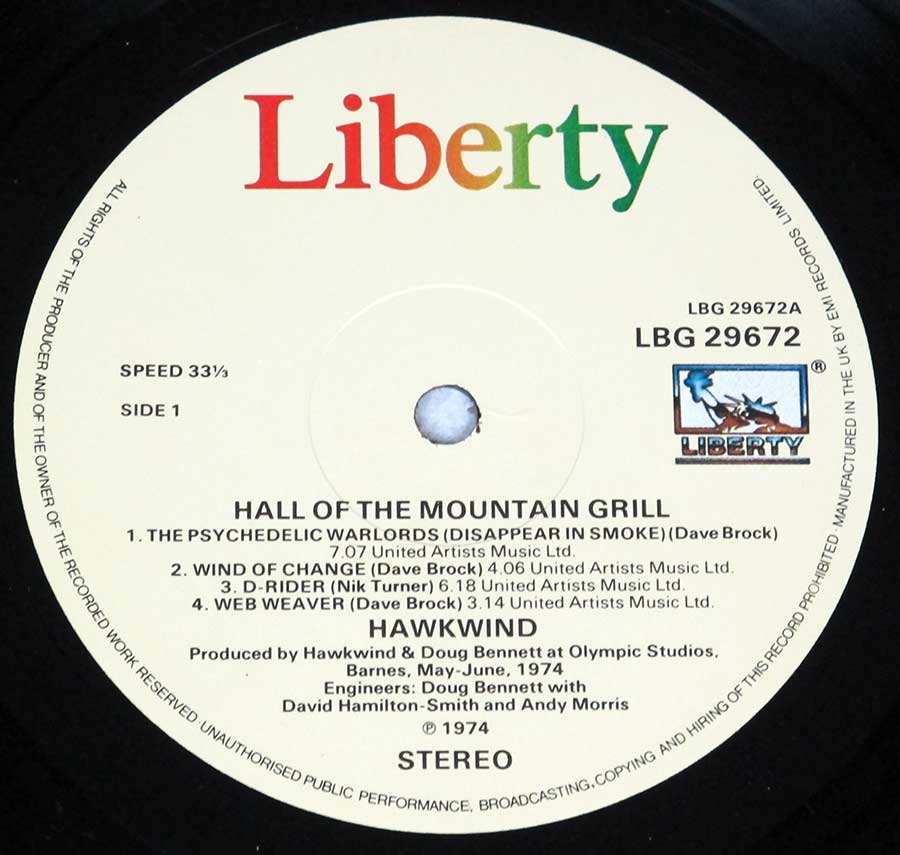Released in 1974, "Hall of the Mountain Grill" stands as a landmark album in Hawkwind's extensive discography and a pivotal moment in the broader landscape of progressive and space rock. Arriving amidst a vibrant era of musical experimentation, the album captured the zeitgeist of its time, pushing the boundaries of sound and venturing into uncharted sonic territories.
A Sonic Tapestry of Space Rock
Hawkwind's distinct brand of space rock is on full display throughout "Hall of the Mountain Grill." The album weaves a rich tapestry of sound, incorporating elements of psychedelic rock, heavy metal, and electronic music. Synthesizers, Mellotrons, and electric guitars intertwine, creating a sonic landscape that is both expansive and otherworldly. Tracks like "The Psychedelic Warlords (Disappear in Smoke)" and "D-Rider" showcase the band's ability to blend heavy riffs with atmospheric textures, while the instrumental "Hall of the Mountain Grill" delves into a more ambient and experimental realm.
Themes of Cosmic Exploration and Social Commentary
Lyrically, the album explores themes of cosmic exploration, societal disillusionment, and the search for meaning in a rapidly changing world. Songs like "Wind of Change" and "You'd Better Believe It" touch upon environmental concerns and social unrest, while the title track evokes a sense of mystery and wonder, inviting listeners to embark on a journey of self-discovery.
Behind the Scenes: Production and Recording
The album was produced by the band themselves, along with Doug Bennett and Roy Baker. It was recorded at Olympic Studios in Barnes, London, with additional tracks recorded live at Edmonton Sundown. The production team's willingness to experiment and push the boundaries of conventional recording techniques contributed to the album's unique sonic character.
Controversies and Line-Up Changes
The recording of "Hall of the Mountain Grill" was not without its challenges. The band experienced internal tensions and line-up changes during the recording process, which ultimately led to the departure of bassist Lemmy Kilmister and saxophonist Nik Turner. Despite these setbacks, the album managed to maintain a cohesive sound and vision, thanks in large part to the creative leadership of guitarist and vocalist Dave Brock.


